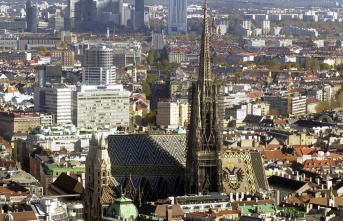NEW YORK , This winter expect to pay significantly higher heating bills, and almost everything else.
The U.S. government announced Wednesday that it expects households' heating bills to rise by as much as 54% this winter, despite rising prices for natural gas, heating oil and other fuels.
The average cost of natural gas heating in the United States is $746. This is 30% more than the average price a year ago. The Midwest is at risk of being particularly squeezed, as bills are up by 49%. This could make it the most expensive winter since 2008-2009 for natural gas-heated homes.
Electricity is the second most popular heating source, accounting for 41% of the country. These households could see a modest 6% increase to $1 268. Heating oil homes, which account for 4% of the country's population, could see an increase of 43% to $1,734. Propane, which accounts for 5% of U.S. homes, is likely to see the most drastic increases.
The winter forecast for this year is slightly colder than last year. This means that people will need to heat more and pay more for it. Heating bills may rise if winter is even colder than expected, or vice versa.
The latest reminder of rising inflation is the U.S. Energy Information Administration's forecast. A separate report by the government was released earlier Wednesday showing that prices for U.S. citizens in September were 5.4% higher than they were a year ago. This is the highest inflation rate since 2008. A reawakening economy, snarled supply chain and rising prices all push up everything from groceries to cars.
Higher prices have an impact on everyone. However, most workers are not getting the same pay rises as inflation. They are especially harmful for low-income households.
Carol Hardison is the chief executive officer of Crisis Assistance Ministry. This ministry helps those in Charlotte, North Carolina who are in financial hardship.
According to her, households who have come in for assistance recently have unpaid bills roughly twice as large as before the pandemic. They are faced with higher housing costs, increased medical bills, and reduced hours.
She said, "It's what is known about this pandemic: It has hit the same people who were already struggling with wages that are not keeping up the cost of living."
Families are making drastic cuts to make ends meet. According to a September survey conducted by the U.S. Census Bureau, nearly 22% of Americans had reduced or forgo basic necessities such as food or medicine in order to pay their energy bills within the past 12 months.
Mark Wolfe, executive Director of the National Energy Assistance directors' Association, stated that "this is going to cause significant hardship for people living in the bottom third" of the country. You can tell them to reduce their heat and turn it down at night. But many low-income families do this already. They couldn't afford energy."
Many of these families are still struggling to get through the hot summer with high air-conditioning costs.
Wolfe stated that while Congress allocates some money to energy assistance programs, directors of these programs are seeing their purchasing power decrease as fuel prices keep rising.
This winter's high heating bills are mainly due to the recent rise in energy commodity prices after they fell to multi-year lows for 2020. As the economy recovers from the shutdowns caused the coronavirus, demand has grown more quickly than production.
For example, natural gas prices in the United States have risen to their highest level since 2014. It has also increased by roughly 90% over the past year. In the meantime, heating oil wholesale prices have more than doubled over the past 12 months.
Another reason is the globalization of the fuels market. Strong demand and limited supply have driven natural gas prices higher in Europe by more than 350% this past year. This is causing some natural gas from the United States to be shipped onwards to other countries, increasing domestic prices.
According to Amarpreet Singh, a Barclays analyst, the amount of natural gas stored in storage inventories has been found to be relatively low. This means that there is less cushion for winter heating season.
The price of heating oil is closely tied to the rise in crude oil this year, which has increased more than 60%. These increases have mainly affected Northeast homes, where heating oil use has fallen to 18% from 27% in the past decade.
Date Of Update: 16 October 2021, 15:36










